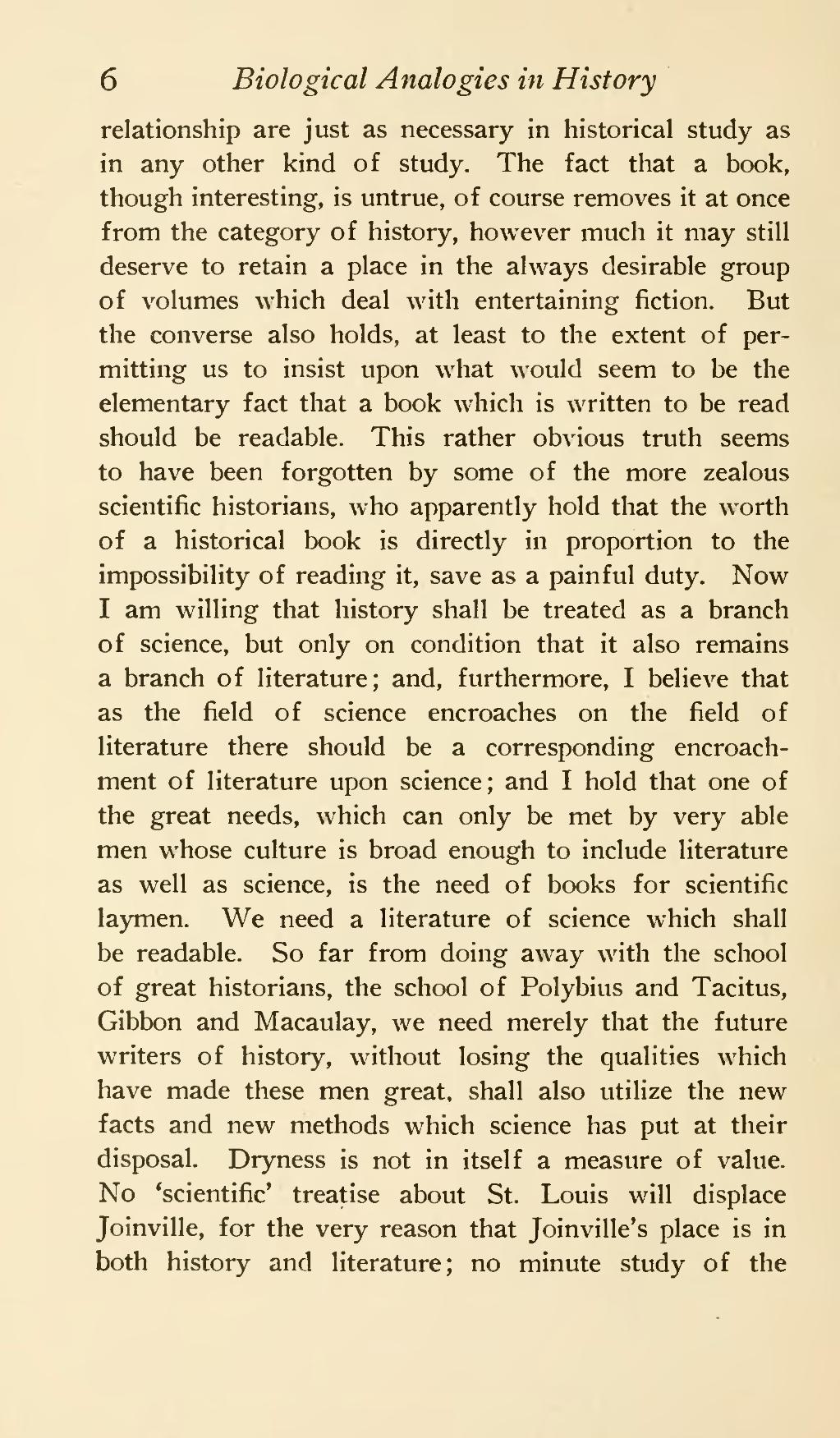relationship are just as necessary in historical study as in any other kind of study. The fact that a book, though interesting, is untrue, of course removes it at once from the category of history, however much it may still deserve to retain a place in the always desirable group of volumes which deal with entertaining fiction. But the converse also holds, at least to the extent of permitting us to insist upon what would seem to be the elementary fact that a book which is written to be read should be readable. This rather obvious truth seems to have been forgotten by some of the more zealous scientific historians, who apparently hold that the worth of a historical book is directly in proportion to the impossibility of reading it, save as a painful duty. Now I am willing that history shall be treated as a branch of science, but only on condition that it also remains a branch of literature; and, furthermore, I believe that as the field of science encroaches on the field of literature there should be a corresponding encroachment of literature upon science; and I hold that one of the great needs, which can only be met by very able men whose culture is broad enough to include literature as well as science, is the need of books for scientific laymen. We need a literature of science which shall be readable. So far from doing away with the school of great historians, the school of Polybius and Tacitus, Gibbon and Macaulay, we need merely that the future writers of history, without losing the qualities which have made these men great, shall also utilize the new facts and new methods which science has put at their disposal. Dryness is not in itself a measure of value. No 'scientific' treatise about St. Louis will displace Joinville, for the very reason that Joinville's place is in both history and literature; no minute study of the
